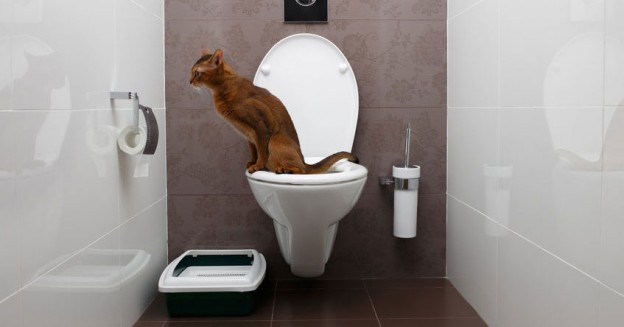The Consequences of Flushing Cat Poop Down Your Toilet - Safeguard Your Plumbing
The Consequences of Flushing Cat Poop Down Your Toilet - Safeguard Your Plumbing
Blog Article
Each person will have his or her own conception about Don’t flush cat feces down the toilet.

Intro
As cat owners, it's necessary to bear in mind just how we take care of our feline buddies' waste. While it may appear convenient to flush feline poop down the commode, this practice can have damaging repercussions for both the environment and human health and wellness.
Alternatives to Flushing
Fortunately, there are more secure and more responsible ways to throw away feline poop. Think about the complying with options:
1. Scoop and Dispose in Trash
One of the most typical approach of getting rid of pet cat poop is to scoop it into a biodegradable bag and throw it in the garbage. Make certain to make use of a dedicated trash scoop and take care of the waste immediately.
2. Use Biodegradable Litter
Go with eco-friendly cat trash made from products such as corn or wheat. These clutters are environmentally friendly and can be safely dealt with in the garbage.
3. Hide in the Yard
If you have a lawn, take into consideration hiding cat waste in a designated area away from vegetable gardens and water sources. Make sure to dig deep sufficient to avoid contamination of groundwater.
4. Set Up a Pet Waste Disposal System
Purchase a family pet waste disposal system particularly developed for cat waste. These systems use enzymes to break down the waste, decreasing odor and environmental influence.
Wellness Risks
In addition to environmental problems, purging cat waste can also posture wellness risks to people. Pet cat feces might include Toxoplasma gondii, a bloodsucker that can create toxoplasmosis-- a possibly severe illness, specifically for expecting women and people with weakened immune systems.
Ecological Impact
Purging cat poop presents dangerous microorganisms and parasites right into the supply of water, posturing a significant risk to water ecological communities. These contaminants can negatively influence aquatic life and compromise water quality.
Conclusion
Responsible animal ownership extends beyond offering food and sanctuary-- it likewise includes proper waste management. By refraining from purging feline poop down the bathroom and choosing alternative disposal methods, we can minimize our ecological footprint and safeguard human wellness.
Why Can’t I Flush Cat Poop?
It Spreads a Parasite
Cats are frequently infected with a parasite called toxoplasma gondii. The parasite causes an infection called toxoplasmosis. It is usually harmless to cats. The parasite only uses cat poop as a host for its eggs. Otherwise, the cat’s immune system usually keeps the infection at low enough levels to maintain its own health. But it does not stop the develop of eggs. These eggs are tiny and surprisingly tough. They may survive for a year before they begin to grow. But that’s the problem.
Our wastewater system is not designed to deal with toxoplasmosis eggs. Instead, most eggs will flush from your toilet into sewers and wastewater management plants. After the sewage is treated for many other harmful things in it, it is typically released into local rivers, lakes, or oceans. Here, the toxoplasmosis eggs can find new hosts, including starfish, crabs, otters, and many other wildlife. For many, this is a significant risk to their health. Toxoplasmosis can also end up infecting water sources that are important for agriculture, which means our deer, pigs, and sheep can get infected too.
Is There Risk to Humans?
There can be a risk to human life from flushing cat poop down the toilet. If you do so, the parasites from your cat’s poop can end up in shellfish, game animals, or livestock. If this meat is then served raw or undercooked, the people who eat it can get sick.
In fact, according to the CDC, 40 million people in the United States are infected with toxoplasma gondii. They get it from exposure to infected seafood, or from some kind of cat poop contamination, like drinking from a stream that is contaminated or touching anything that has come into contact with cat poop. That includes just cleaning a cat litter box.
Most people who get infected with these parasites will not develop any symptoms. However, for pregnant women or for those with compromised immune systems, the parasite can cause severe health problems.
How to Handle Cat Poop
The best way to handle cat poop is actually to clean the box more often. The eggs that the parasite sheds will not become active until one to five days after the cat poops. That means that if you clean daily, you’re much less likely to come into direct contact with infectious eggs.
That said, always dispose of cat poop in the garbage and not down the toilet. Wash your hands before and after you clean the litter box, and bring the bag of poop right outside to your garbage bins.
https://trenchlesssolutionsusa.com/why-cant-i-flush-cat-poop/

I discovered that page on Can You Flush Cat Poo or Litter Down the Toilet? when doing research the internet. Are you aware of another person who is fascinated with the niche? Be sure promote it. Thanks a lot for your time spent reading it.
Call Today Report this page